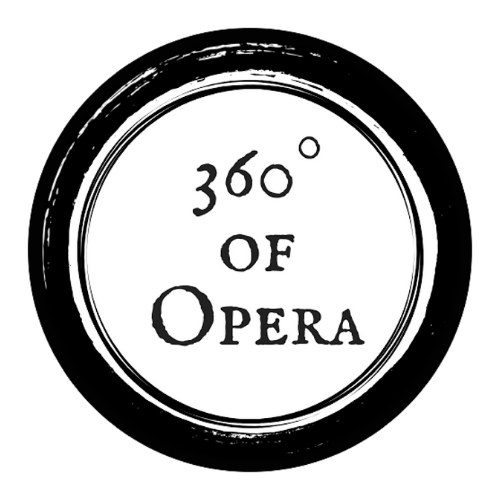Death of Classical: Spring, Strings and Tasty Things
In anticipation of Spring, Strings, and Tasty Things at the historic Green-Wood Cemetery, Chloe Yang had the pleasure of sitting down with Andrew Ousley, the visionary founder of Death of Classical, and Ruckus, a trailblazing baroque band. They delved into their creative processes, inspirations, and hopes for the event.
ANDREW OUSLEY
1. What inspired you to create the Spring, Strings, and Tasty Things event after the success of the Burgers, Bourbon & Beethoven Festival?
We just had such a fun time with Burgers, Bourbon, & Beethoven, then the follow-up event Hot Dogs, Hooch, & Handel, and last year’s Tacos, Tequila & Tavener’s Protecting Veil, that we felt we needed to keep the party going. It’s deeply gratifying to me to combine things I love — great food, thoughtfully-crafted spirits, and magnificent classical music — into one massive outdoor event.
2. How do you curate the musical performances and food offerings to create a unique and immersive experience for attendees?
Other than the carefully-constructed alliterative event names, I just focus on sharing the things I love with our audience — the music is the throughline and culmination of the evening, so it needs to offer a shared experience of beauty to follow all of the wonderful food and drink.
3. In many of the experiences you’ve curated, there seems to be a balance between nostalgia for the past and allegory of the present, even in the language used in your marketing. How do you strike a balance between allowing attendees to escape into a different world while still reflecting on the here and now?
The timelessness of classical music is what drew me to it in the first place, and why my organization is called (with tongue firmly in cheek) Death of Classical — this is music that will never die, but which has a different impact on each generation it touches. I also think that, in order to understand the present moment, we need to also look toward the past and learn from it. To me, our events are never about escaping the present, but rather about feeling an even deeper connection to it, and an awareness of the preciousness of each moment — something that becomes even more powerful when you're in a cemetery, surrounded by reminders of the fragility of life.
4. As a part-time photographer, do you find that your visual artistry influences your approach to creating live music experiences?
I see all art as part of a continuum, a means of expressing emotion and telling the stories that matter most to us. So whether it’s through music, dance, photography, visual art, food & drink, or any other creative discipline (or combination thereof, as we have in this event!), I'm interested in inspiring people, and sharing a golden moment with them.
RUCKUS
1. How do you balance staying true to the historical context while bringing a fresh perspective to baroque performances?
We LOVE this music, and we understand it deeply, and have studied treatises, and the sounds our old-style instruments make, but the most important thing for us as a band to do is make music we think sounds awesome and vivid, and not get bogged down on what some neurotic music writer said a few hundred years ago.
2. You've been described as having a “visceral and playful approach” to early music. Can you elaborate on what this means and how it translates to your live performances?
We take “play” seriously. If we aren’t laughing a lot in rehearsal, something is not right. Ruckus’s core members are continuo players: harpsichord, guitar, bass, bassoon, cello, etc. Continuo playing is super improvisational — it’s like a lead sheet in the jazz world. The vibrant, experimental continuo playing that we aim for opens up a whole world of possibilities of ever-shifting color and texture. This is what Ruckus is known for.
3. Handel’s Water Music has been performed and interpreted by many renowned ensembles over the years. What unique elements will you bring to your rendition of this iconic work, and how will your performance stand out from others?
Well, rocking out, in the way that only Ruckus does, of course. We also have a few delicious additions to the instrumental ensemble, including a futurist organ-synthesizer, as well as a great percussionist adding even more unexpected and evocative colors to Handel’s Water Music.
4. The event description mentions that you will be offering a lesson in old-school social dancing. Can you give us a sneak peek of what attendees can expect from this interactive portion of the evening?
Yes, they should expect to have a lot of fun. If social dancing is not a part of your life, come try it out! Side effects may include a greater sense of connection to fellow people, a lightness of being and a little bit of sweat. No experience is fantastic. Our dance instructor will teach us some classic old-school group dances and making mistakes is part of the joy. The band will be banging and sawing and honking away to keep you going.
From the diverse array of food offerings, to the engaging social dancing and the breathtaking performance of Handel’s Water Music, the garden party had something for everyone. If you missed out on Spring, Strings, and Tasty Things, fear not — Death of Classical has plenty more in store for music lovers and cultural enthusiasts alike. Keep an eye out for their upcoming events, and prepare to be transported by the timeless beauty of classical music in unexpected and enchanting settings.
NEW! Check out Chloe’s Vlog about this event!
-written by Chloe Yutong Yang
-photography by Mackenzie Horne


